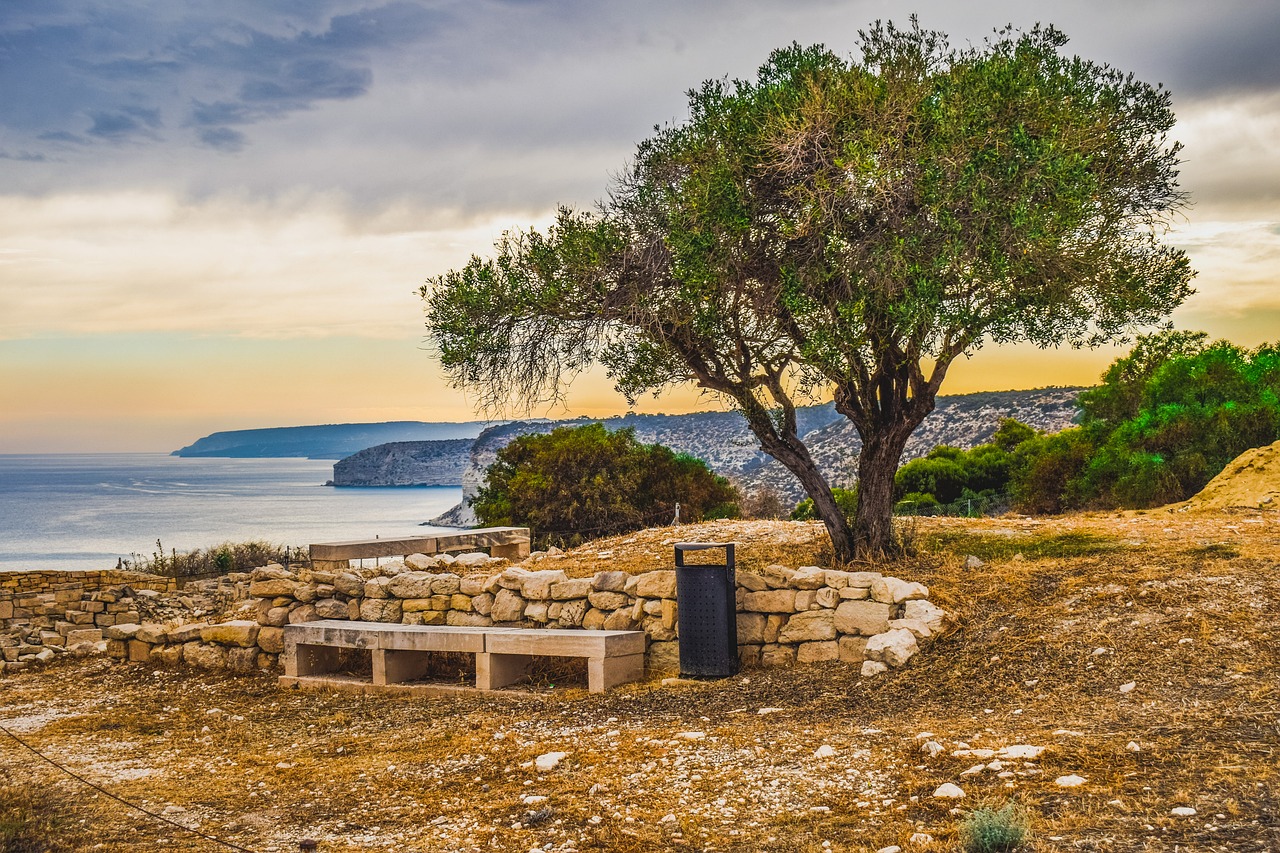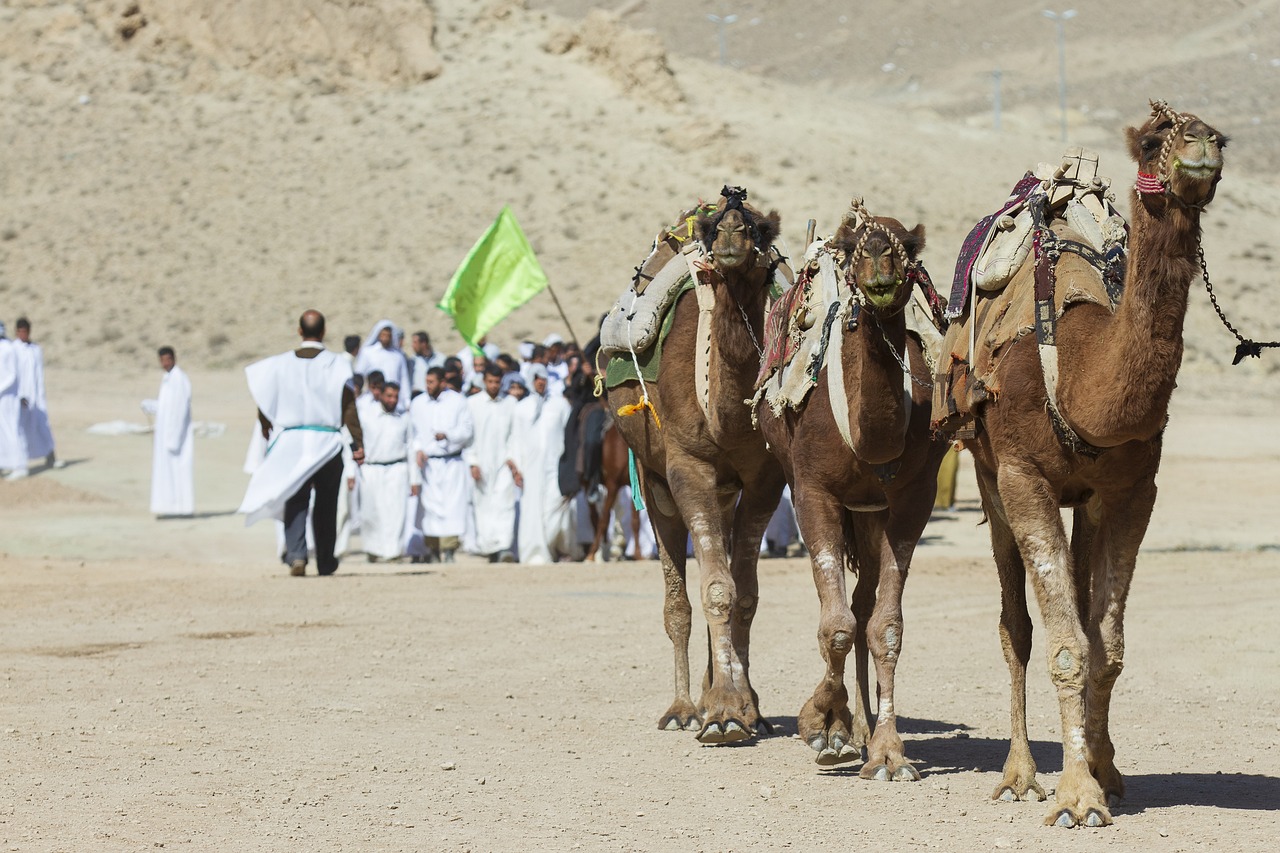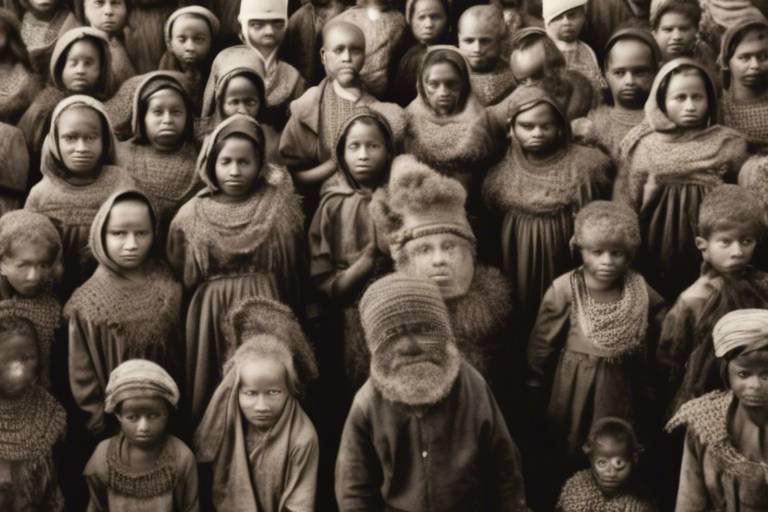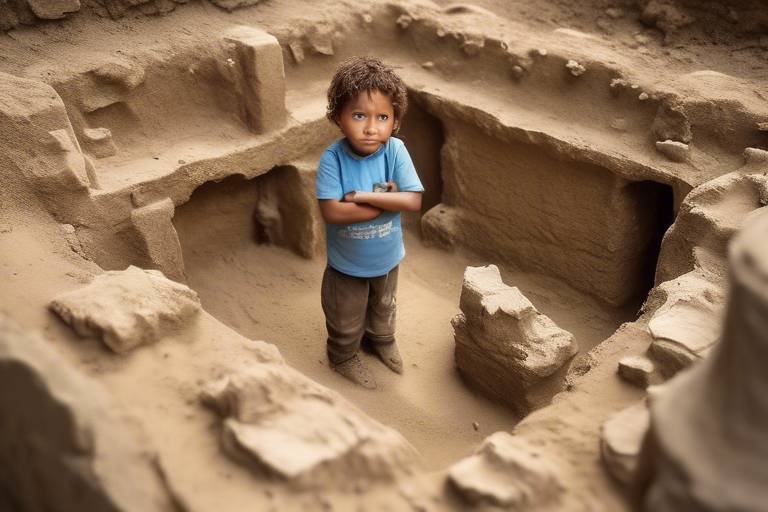The Legacy of Ancient Civilizations on Modern Governance
Ancient civilizations have left an indelible mark on modern governance, shaping the very foundations of how societies are structured and ruled in the present day. The legacies of these ancient cultures continue to influence contemporary governance structures and practices, providing valuable insights into the evolution of governance systems worldwide.
From the birth of democracy in Ancient Greece to the intricate legal system of the Romans, each civilization has contributed unique elements that have stood the test of time. The administrative practices of ancient Egypt, the governance structures of China, the urban planning techniques of the Indus Valley, the societal hierarchies of Mesoamerica, the Islamic Caliphate systems, and the governance models of African tribes all play a role in shaping modern governance.
By delving into the rich history of these ancient civilizations, we gain a deeper understanding of the origins of modern governance systems. The democratic principles established in Ancient Greece laid the groundwork for contemporary democracies around the world, emphasizing the importance of citizen participation and decision-making.
The Roman legal system, with its emphasis on justice and the rule of law, continues to influence modern legal frameworks, ensuring fairness and accountability in governance. The administrative practices of ancient Egypt set a precedent for efficient bureaucratic systems, streamlining governance processes and ensuring effective administration.
Exploring the governance structures of ancient China reveals insights into modern authoritarian regimes, highlighting the balance of power between the ruler and the ruled. The urban planning techniques of the Indus Valley civilization offer lessons in sustainable city design, promoting organized and functional urban spaces.
Examining the societal hierarchies of Mesoamerican civilizations sheds light on contemporary social structures, showcasing the complexities of class divisions and power dynamics. The governance systems of the Islamic Caliphates provide a historical perspective on governance in Islamic states, emphasizing principles of justice and equity.
Finally, the governance models of ancient African tribes offer valuable lessons in tribal leadership structures, emphasizing community cohesion and collective decision-making. The legacy of these ancient civilizations on modern governance is profound, underscoring the enduring impact of historical precedents on contemporary governance practices.

Democracy in Ancient Greece
Ancient Greece, often hailed as the cradle of democracy, laid the foundation for modern governance systems through its innovative political practices. The concept of democracy, originating from the Greek words "demos" (people) and "kratos" (rule), emphasized the power of the citizens in decision-making processes. In the city-state of Athens, democracy flourished as a system where eligible male citizens participated directly in governmental affairs, shaping policies and laws that governed the community.
This revolutionary approach to governance in Ancient Greece challenged traditional autocratic rule and established a framework where the voice of the people held significant weight. Citizens gathered in assemblies to debate and vote on issues, ensuring a level of political participation and representation that was unparalleled in its time. The principles of equality, freedom of speech, and the rule of law were fundamental to the functioning of Athenian democracy, setting a precedent for democratic ideals that continue to influence modern governance structures worldwide.
The legacy of democracy in Ancient Greece transcends time, inspiring nations to adopt representative forms of government that prioritize the rights and interests of their citizens. From the halls of Parliament to the corridors of Congress, the echoes of Athenian democracy resonate in the democratic institutions that govern societies today. The principles of accountability, transparency, and civic engagement, championed by the ancient Greeks, remain essential pillars of modern democratic governance.

Roman Legal System
The Roman legal system is renowned for its enduring impact on modern legal frameworks and the rule of law. Dating back to the Roman Republic and later the Roman Empire, this legal system laid the foundation for many aspects of contemporary law.
One of the key contributions of the Roman legal system was the development of codified laws, which provided a clear set of rules and principles for governing society. This codification helped ensure consistency and predictability in legal decisions, a concept that remains fundamental in modern legal systems.
Moreover, the Romans introduced the concept of due process and the right to a fair trial. The idea that individuals are entitled to a defense and a hearing before an impartial judge was a significant advancement in legal philosophy that continues to shape legal systems worldwide.
Another crucial aspect of the Roman legal system was the emphasis on precedent and legal reasoning. Roman jurists developed the practice of using previous judicial decisions as a basis for current rulings, establishing a tradition of legal interpretation that persists in contemporary jurisprudence.
Furthermore, the Roman legal system distinguished between public law and private law, laying the groundwork for the modern division between criminal and civil law. This division helped clarify the roles of government and individuals in legal matters, promoting accountability and justice.
In addition to these foundational principles, the Roman legal system also influenced the development of contract law and property rights. The concept of legally binding agreements and the protection of individual ownership rights were integral to Roman legal thought and continue to shape commercial and property law today.
Overall, the Roman legal system's legacy is profound, with its principles and practices echoing through the corridors of modern legal institutions. By studying and understanding the contributions of ancient Rome to legal theory and practice, we gain valuable insights into the evolution of governance and the rule of law.

Egyptian Administrative Practices
Exploring how ancient civilizations have influenced modern governance structures and practices, shaping the way societies are governed today.
The administrative practices of ancient Egypt were highly sophisticated and laid the foundation for modern bureaucratic systems. The Egyptians developed intricate methods of record-keeping, taxation, and organization that are still reflected in contemporary administrative processes.
One of the key aspects of Egyptian administrative practices was the meticulous record-keeping system. Officials meticulously documented various aspects of society, such as census data, tax records, and agricultural production. This attention to detail and organization set a precedent for efficient governance that continues to influence administrative practices today.
Moreover, the hierarchical structure of Egyptian bureaucracy ensured smooth functioning of the state. Different levels of officials were responsible for specific tasks, creating a division of labor that optimized efficiency. This structured approach to governance is mirrored in modern bureaucratic systems, where clear roles and responsibilities are essential for effective administration.
The Egyptians also implemented a system of taxation to fund public projects and maintain the state apparatus. Tax collectors were appointed to assess and collect taxes from the population, providing a steady revenue stream for the government. This financial management system set a precedent for modern fiscal policies and budgeting practices.
Furthermore, the construction of monumental public works, such as temples and pyramids, required meticulous planning and coordination. Egyptian administrative practices in project management and resource allocation have parallels in contemporary infrastructure development and urban planning.
In conclusion, the Egyptian administrative practices were pioneering in their complexity and organization, leaving a lasting impact on modern governance structures. By studying and adapting these ancient methods, modern societies continue to benefit from the legacy of Egyptian administrative expertise.

Chinese Imperial Governance
Chinese Imperial Governance played a significant role in shaping the governance structures of ancient China, leaving a lasting impact on modern authoritarian regimes. The Imperial system in China was characterized by a centralized government led by an emperor who held absolute power. This form of governance emphasized hierarchy, obedience, and the belief in the divine right of the ruler to govern.
Under the Chinese Imperial system, the emperor was considered the Son of Heaven, acting as the intermediary between the divine realm and the earthly realm. This concept of imperial authority influenced not only political governance but also social and cultural aspects of Chinese society. The bureaucracy, known as the civil service examination system, was established to select officials based on merit rather than hereditary status, promoting a sense of meritocracy within the government.
The Imperial Court in ancient China was structured with various ministries and departments responsible for different aspects of governance, such as finance, military affairs, and public works. This organized system of governance allowed for efficient administration and decision-making processes, ensuring stability and order within the empire.
Furthermore, the Chinese Imperial governance system also introduced the concept of Confucianism as the official state ideology, emphasizing the importance of social harmony, filial piety, and respect for authority. These values influenced not only governance but also societal norms and ethical standards, shaping the moral fabric of Chinese civilization.
Overall, Chinese Imperial Governance left a profound legacy on modern governance structures, particularly in authoritarian regimes where centralized power, hierarchical structures, and emphasis on order and obedience are prevalent.

Indus Valley Urban Planning
The urban planning techniques of the ancient Indus Valley civilization have left a lasting impact on modern city design principles. Dating back to around 2600-1900 BCE, the cities of Harappa and Mohenjo-Daro showcased remarkable urban planning sophistication. The layout of these cities featured a grid system with well-organized streets, advanced drainage systems, and carefully planned residential and commercial areas. The Indus Valley civilization's focus on efficient infrastructure and city organization set a precedent for future urban development.
One of the most notable aspects of the Indus Valley urban planning was the advanced sanitation and drainage systems. The cities were equipped with a complex network of underground drains and sewers that efficiently disposed of waste and prevented waterlogging. This emphasis on sanitation and public health highlights the civilization's understanding of the importance of hygiene in urban environments, a concept that remains crucial in modern city planning.
In addition to sanitation, the Indus Valley civilization prioritized public spaces and community areas within their cities. Archaeological evidence suggests the presence of public baths, granaries, and assembly halls, indicating a focus on communal well-being and social gatherings. This communal approach to urban planning fostered a sense of unity and cohesion among residents, a principle that continues to influence modern urban design strategies.
The Indus Valley urban centers also featured multi-story buildings constructed with standardized bricks, showcasing a level of architectural sophistication unparalleled in that era. The uniformity in building materials and construction techniques reflects a centralized authority overseeing city development and construction projects. This centralized planning and standardization of construction methods laid the foundation for uniform building codes and regulations in contemporary urban planning.
Furthermore, the presence of citadels or fortified structures in Indus Valley cities suggests a concern for defense and security, indicating a level of strategic foresight in urban defense planning. The incorporation of defensive structures within the urban layout demonstrates a holistic approach to city planning that considered both practical and security aspects, a principle that resonates in modern urban security strategies.

Mesoamerican Societal Hierarchies
Mesoamerican Societal Hierarchies were intricate systems of social organization prevalent in civilizations such as the Aztecs, Mayans, and Incas. These hierarchies were structured in a way that reflected the societies' beliefs, values, and power dynamics. At the top of the hierarchy were rulers, priests, and nobles who held significant power and authority over the population. They were responsible for making important decisions, leading religious ceremonies, and maintaining order within the society.
Beneath the ruling class were the common people, including farmers, artisans, and laborers. These individuals formed the backbone of the society, providing essential goods and services to support the economy and infrastructure. Despite their crucial role, they often had limited social mobility and were subject to the authority of the upper classes.
Another important aspect of Mesoamerican Societal Hierarchies was the division of labor based on social status. Different roles and responsibilities were assigned to individuals based on their place in the hierarchy. For example, warriors were tasked with defending the civilization, while craftsmen were skilled in creating intricate artworks and tools.
Religion played a significant role in reinforcing and legitimizing the societal hierarchy. Priests held immense influence and were seen as intermediaries between the people and the gods. Religious ceremonies and rituals were used to maintain social order and reinforce the divine right of rulers to govern.
Moreover, the concept of tribute was integral to Mesoamerican Societal Hierarchies. Conquered territories and subject populations were required to pay tribute in the form of goods, labor, or sacrifices to the ruling elite. This system of tribute further solidified the power dynamics within the society and reinforced the authority of the ruling class.

Islamic Caliphate Systems
The Islamic Caliphate systems were a significant form of governance in the history of Islam, establishing a unique blend of political and religious authority. The concept of a caliphate, derived from the Arabic word 'khilafah,' meaning succession, represented the leadership of the Muslim community after the death of the Prophet Muhammad. The first four caliphs, known as the Rashidun Caliphs, played a crucial role in shaping the early Islamic governance structures.
During the Umayyad and Abbasid periods, the caliphate evolved into a more centralized system, with the caliphs holding both political and religious authority. The caliph was considered the successor to the Prophet Muhammad and served as the supreme leader of the Islamic community. The caliph's role was not only political but also spiritual, as they were seen as the guardians of Islamic law and morality.
One of the key features of the Islamic Caliphate systems was the concept of consultation (Shura), which emphasized the importance of seeking counsel and consensus among the ruling elite. This practice of collective decision-making influenced the development of governance structures in many modern Islamic states.
The Islamic Caliphate systems also introduced the idea of a unified legal system based on Islamic law (Sharia). The caliphs were responsible for upholding justice and ensuring that laws were in accordance with Islamic principles. This legal framework laid the foundation for modern Islamic legal systems and influenced the development of legal codes in many Muslim-majority countries.
Furthermore, the caliphate system promoted the expansion of knowledge and scholarship, leading to significant advancements in various fields such as science, medicine, philosophy, and literature. The House of Wisdom in Baghdad, established during the Abbasid Caliphate, became a center of learning and intellectual exchange, contributing to the preservation and translation of ancient texts from Greek, Persian, and Indian sources.
In conclusion, the Islamic Caliphate systems played a crucial role in shaping the governance structures of the Islamic world and have left a lasting impact on modern governance practices in many Muslim-majority countries.

African Tribal Governance
African tribal governance is a fascinating subject that offers insights into traditional leadership structures and decision-making processes within various African tribes. These governance models, rooted in centuries-old traditions and cultural norms, continue to influence contemporary tribal leadership structures in Africa.
One key aspect of African tribal governance is the emphasis on communal decision-making, where the chief or tribal leader consults with elders and other community members before making important decisions. This participatory approach ensures that the entire community has a voice in governance matters, promoting inclusivity and consensus building.
Moreover, African tribal governance often revolves around the concept of kinship and lineage, with leadership positions passed down through hereditary lines. This practice helps maintain continuity and stability within the tribe, as leaders are typically chosen based on their familial connections and perceived ability to uphold tribal values.
Additionally, traditional African tribal governance systems place a strong emphasis on oral tradition and storytelling as a means of preserving historical knowledge and passing down cultural practices from one generation to the next. This storytelling aspect not only serves as a form of education but also reinforces the collective identity and values of the tribe.
Furthermore, the role of elders in African tribal governance is highly significant, as their wisdom and experience are valued in decision-making processes. Elders often serve as advisors to the tribal leader, offering guidance based on their years of lived experience and deep understanding of tribal customs.
In summary, African tribal governance is characterized by its community-oriented approach, reliance on oral tradition, emphasis on kinship ties, and respect for the wisdom of elders. These traditional governance models continue to play a vital role in shaping the leadership structures and social dynamics of many African tribes today.
Frequently Asked Questions
- What is the significance of ancient civilizations on modern governance?
Ancient civilizations have played a crucial role in shaping modern governance structures and practices. They have laid the foundation for various political systems, legal frameworks, and administrative practices that are still prevalent today.
- How did democracy in Ancient Greece influence contemporary governance?
The concept of democracy in Ancient Greece has had a profound impact on contemporary governance worldwide. It introduced the idea of citizen participation in decision-making processes, which has become a fundamental principle in many modern democracies.
- What contributions did the Roman legal system make to modern legal frameworks?
The Roman legal system contributed significantly to the development of modern legal frameworks and the rule of law. Concepts such as the presumption of innocence, legal rights, and the importance of written laws have their roots in Roman jurisprudence.
- How have Egyptian administrative practices influenced modern bureaucratic systems?
The administrative practices of ancient Egypt have had a lasting impact on modern bureaucratic systems. Their emphasis on record-keeping, organization, and hierarchical structures has been adopted by contemporary governments and organizations.
- What relevance do the governance structures of ancient China have to modern authoritarian regimes?
The governance structures of ancient China provide insights into the functioning of modern authoritarian regimes. Centralized power, strict social hierarchies, and the use of propaganda were common features in both ancient and modern Chinese governance.
- How did the urban planning techniques of the Indus Valley civilization influence modern city design?
The urban planning techniques of the Indus Valley civilization have influenced modern city design in terms of layout, sanitation, and infrastructure development. Their advanced urban centers serve as a blueprint for contemporary urban planners.
- What parallels exist between the societal hierarchies of Mesoamerican civilizations and contemporary social structures?
The societal hierarchies of Mesoamerican civilizations reflect certain parallels with contemporary social structures. The division of society into distinct classes based on occupation, wealth, and social status can be observed in both ancient and modern societies.
- How have the governance systems of the Islamic Caliphates influenced modern Islamic states?
The governance systems of the Islamic Caliphates have had a lasting impact on modern Islamic states. Principles of justice, consultation, and religious authority established during the Caliphate era continue to shape governance in many Islamic countries.
- What relevance do the governance models of ancient African tribes have to current tribal leadership structures?
The governance models of ancient African tribes provide insights into current tribal leadership structures. Concepts of communal decision-making, consensus-building, and respect for traditional authority are still integral to many tribal communities today.



















